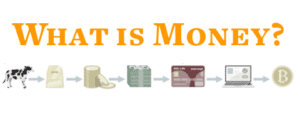Updated August 6, 2020
Our mission is to simplify the complex language of modern economics and finance to help you understand what is happening in our world and react to it in a way that preserves your hard-earned savings. This is a personal journey unique to each individual, so we do not provide recommendations. We seek to present perspectives and reasoning to help you find the truth in a sea of misinformation and complexity.
Below, we share the guiding principles and processes we use to ensure we publish comprehensive, accurate, and insightful content for you.
Principles
Simple: Economics, finance, and our monetary system are made unnecessarily complex by academics and policymakers. We believe if this information was made accessible and interesting to a regular person, the world would be a far better place with more capable, confident, and successful people. We strive to never hand-wave away counterintuitive or confusing conclusions and economic ‘rules’ handed to us by textbooks and people in charge – we will break down every one of these conclusions and ‘rules’ so you can understand. Our goal is to make every post we write understandable over a beer on a Friday night.
Relatable: Many topics in economics and finance can seem arcane and disconnected from the reality of most people’s daily lives. However, we believe money and markets are powerful hidden forces that affect everyone. In every post, we strive to connect high-minded theories and alchemic financial practices to your daily life, so you can better understand how the headlines actually affect you and your loved ones.
Rational: In economics, finance, and markets, data is an unfortunately difficult beast to work with. In the real world, economic data is always woefully incomplete, often allowing the same data set to lead to contradictory conclusions depending on analyses made. Economics also involves cyclical processes that often take generations to play out – unfortunately, most modern quantitative economists only use a few years of data to make conclusions. While we do present economic data throughout our posts, we believe in relying primarily on historical analogy and clear logical reasoning laid out for the reader to judge objectively.
Ethics
We are committed to following the Codes of Ethics of the Society for Advancing Business Editing and Writing (SABEW). Our content is guided by and upholds the Society for Professional Journalists’ foundations of ethical journalism: being accurate and fair, minimizing harm, acting independently, and being accountable and transparent. We also uphold the Federal Trade Commission (FTC) guidelines on disclosures, where applicable.
WhatIsMoney.info content is for informational purposes and is not intended to substitute for the advice of a licensed or certified attorney, accountant, financial advisor, or other certified financial professionals.
Editorial Process
Currently, one writer authors all of the posts on WhatIsMoney.info to guarantee a consistent style and quality standard. Every post published on the site is reviewed twice before publishing to ensure accuracy of source information and logical reasoning. We don’t make recommendations for you to buy, sell, or hold securities or investments. We do, however, provide relevant analysis, context, insights, and educational information to help you make smarter, better-informed decisions. We provide examples, hypotheticals, and historical analogies to help you put complex processes and concepts into perspective.
Quality Standards
Every post on the site goes through at least 2 rounds of review, often involving outside parties, to ensure fair, accurate, and clear analysis is upheld through every sentence.
